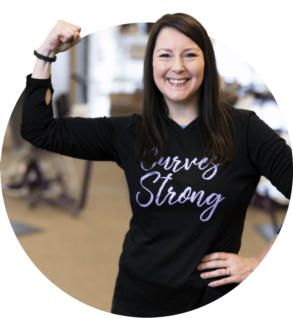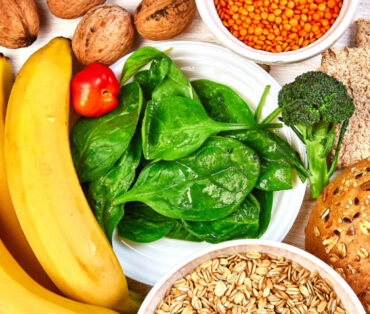Nutrition Advice in the News
Scan the health section of any major news source in print or online and you’re bound to come across a story announcing new dietary recommendations by the US Dietary Guidelines Advisory Committee. Highlights that made the headlines include that we should further rein in how much added sugar we consume, but that we can relax about cholesterol and fat; also that we should eat more veggies, fruits, whole grains, seafood, nuts, and lean proteins.You may be accustomed by now to hearing that we’re consuming too much sugar and not enough fruits and veggies, but is it a license to eat more eggs and slather more butter on your toast?To bring clarity to the news headlines and this new nutrition advice, we turned to Judith Rodriguez, Ph.D., professor of Nutrition at University of North Florida Brooks College of Health and a member of the Curves and Jenny Craig Science Advisory Board.
Here’s what we learned.
Sugar
The concern among experts is over added sugar—the stuff used to sweeten beverages, cereals, and cookies, not the naturally occurring sugars in fruits and vegetables. “Yes, people need to eat less added sugar,” says Rodriguez. “When you have a piece of fruit, you get a lot of nutrients as well as dietary fibre, which slows the release of sugar, but a soft drink, for example, delivers a lot of kilojoules, no nutrition and it floods your body with glucose.”Your nutrition action plan: “Transition slowly. Sweetness is a universally preferred taste, and it’s hard to change your tastes, but you can do it. If you put sugar in your coffee, gradually decrease the amount. Move toward foods that have less added sugar.” And know that sugar comes in many forms. If you see high-fructose corn syrup, dextrose, maltose, evaporated cane juice, fruit juice concentrates, or honey on the label, you know sugar has been added.
Cholesterol
For years, we’ve believed that if you eat foods high in cholesterol, you’ll have high blood cholesterol levels. It’s a logical conclusion, but reams of research shows that it’s incorrect.Your nutrition action plan: “For most people, dietary cholesterol has no effect on blood cholesterol,” says Rodriguez. “Genetics is the key component here. Your body produces cholesterol and also has the task of clearing it. Some [including those with diabetes] are affected though, and especially if there’s a family history of heart disease, minimising cholesterol rich foods is a sensible approach.“The real dietary foe here is saturated fat,” adds Rodriguez, “which research shows does raise blood cholesterol.”
Fat
Indeed, saturated fat raises blood cholesterol and our risk for heart disease, and the advisory committee says we are still consuming too many foods high in saturated fat. The experts do look kindly, however, on polyunsaturated and monounsaturated fats and omega-3s, which help lower LDL (bad) cholesterol, raise HDL (good) cholesterol, and help prevent cardiovascular disease.Your nutrition action plan: Limit foods high in saturated fats including processed meats like sausages and baked goods like cakes and biscuits. Cook with canola or olive oil instead of butter or solid fats, and choose low-fat or nonfat dairy foods. You can feel comfortable enjoying avocados, nuts, and fatty fish such as salmon. These foods are rich in the good-for-you fats. But keep an eye on kilojoules, advises Rodriguez, “while polyunsaturated and monounsaturated fats offer health benefits, you still want to stay within an appropriate caloric range of fats depending on your total daily intake.”
The big picture
An omelet for Sunday brunch? That’s okay—just fill it with a variety of diced vegetables and add a side of fruit. Butter on your toast? Choose an olive oil spread or a nut butter, and swap white bread for wholegrain. And if you like two teaspoons of sugar in your coffee or tea, try reducing it to one. By Claire Kowalchik








